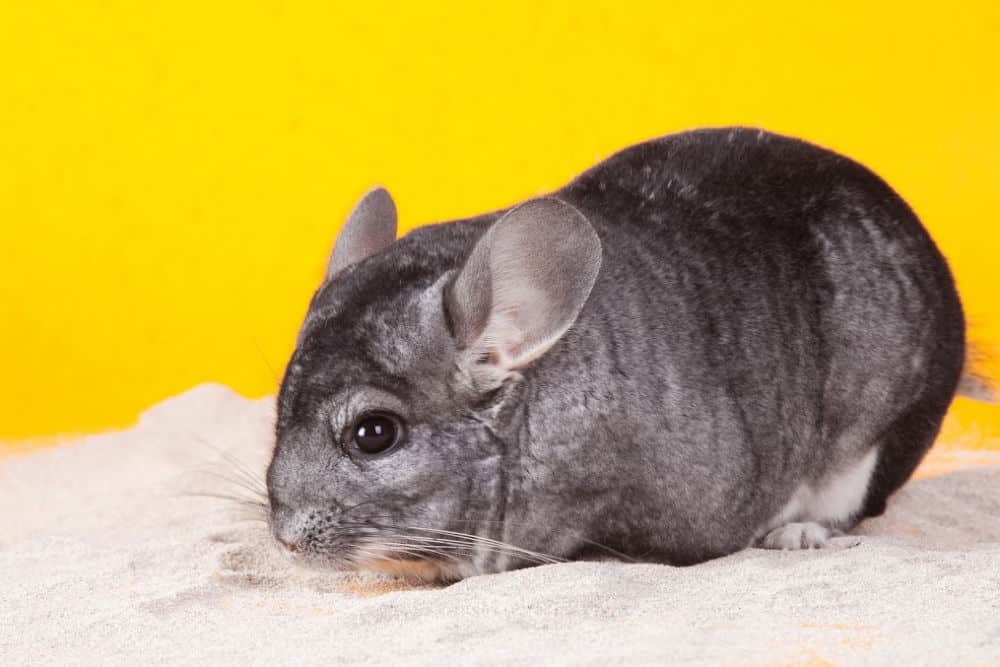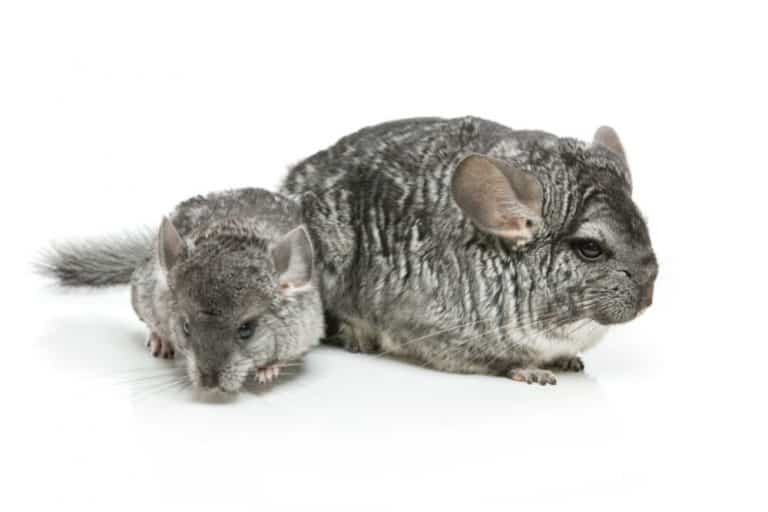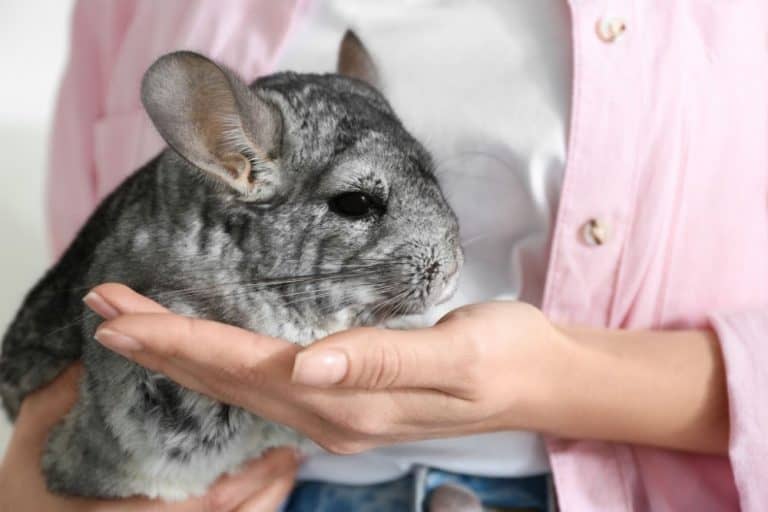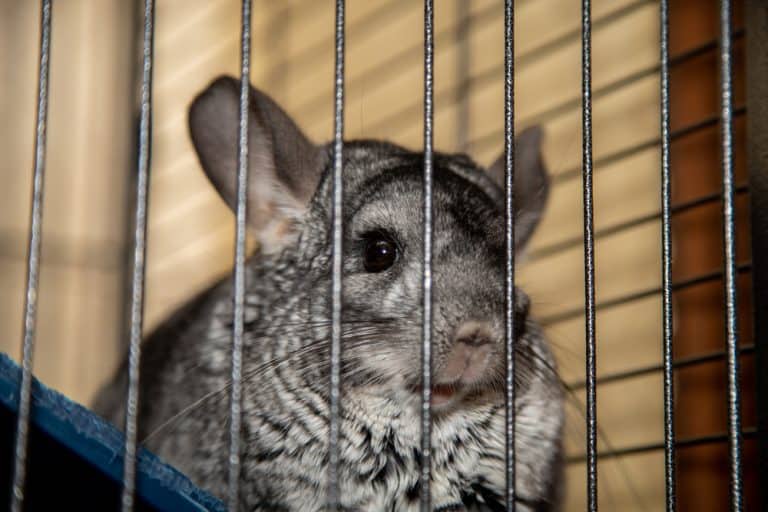Is Your Chinchilla Blind? Here’s How to Tell
Chinchillas make lovely pets, and a healthy chinchilla will have big, dark eyes. Sometimes Chinchillas develop eye problems which, if left untreated, can even make the animals blind. If you own a chinchilla and are wondering how to tell if it’s blind, this article will tell you all about eye problems in chinchillas, including blindness.
Are Chinchillas Blind?
Chinchillas are not usually blind, but their eyesight isn’t as good as ours. However, Chinchillas have very long and sensitive whiskers that help them navigate the world despite their poor eyesight.
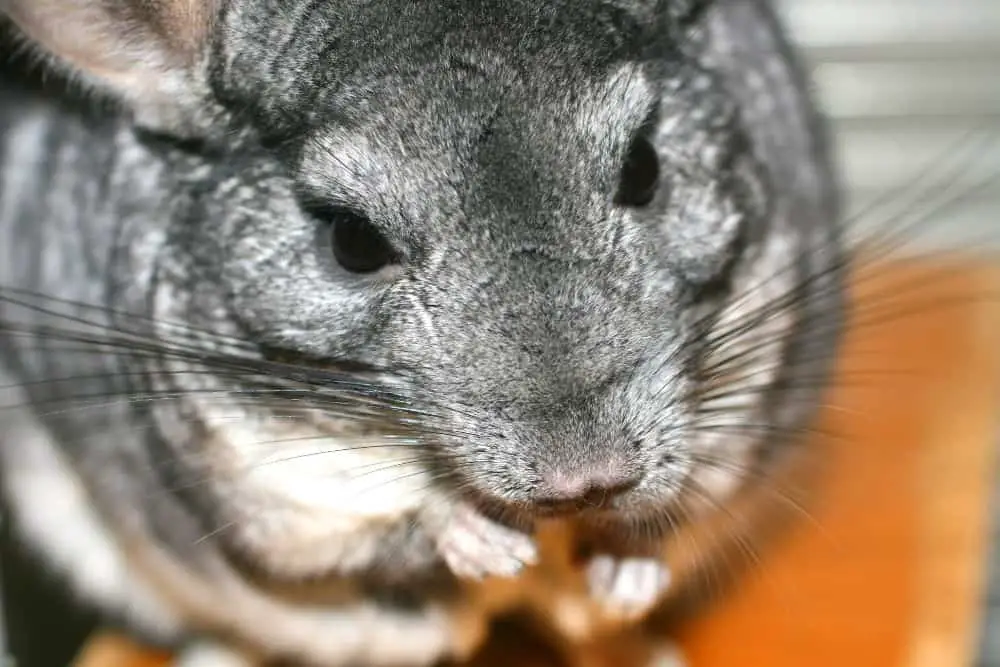
Is my Chinchilla Blind?
Chinchillas’ eyes are usually free from problems, but sometimes they have eye issues, which means that they need to see an exotic vet. If you own a chinchilla, you should familiarize yourself with some of the common eye problems. This will mean that you can spot any issue before they become severe and before your Chinchilla becomes blind.
If you think that your Chinchilla is already blind, you may notice that its behavior has changed or that its not as active as other chinchillas. If your Chinchilla has problems jumping or has been bumping into things, then this may indicate blindness.
Are there any tests I can do at home to see if my Chinchilla is blind?
It’s essential to check your Chinchilla’s eyes regularly to ensure that your pet is in good health. Look out for any changes in the animal’s eyes, such as clouding in the eye or redness around the eyes.
There is a test known as the finger test, which can be used to see if animals are blind. If you think that your Chinchilla may be blind, try moving your finger slowly towards his eye without touching it. This will allow you to see if the Chinchilla blinks or moves, which would indicate whether or not he’s seen your finger. However, sometimes the finger test is misleading, as even the slightest movement will cause the air to move, which will make the chinchilla blink.
If you think that your Chinchilla is blind, it’s best to visit a vet for a thorough exam. If your Chinchilla has suffered from blindness, this is likely to be at the back of the eye and only visible if viewed with specialized equipment.
What type of Eye Problems do Chinchillas suffer from?
Eye problems are relatively common in chinchillas. Here are some eye problems that you should look out for. If you think that your Chinchilla is suffering from any of these issues, it’s crucial to seek medical attention as soon as possible so that blindness doesn’t result.
Corneal Ulcers
Corneal ulcers are fairly common in chinchillas as well as other small mammals and are caused by scratches or irritations. Sometimes the surface of your chinchillas’ eye may become irritated by hay or dust or could get scratched in a fight with another chinchilla. The surface of the eye is called the cornea, and sometimes a scratch may be visible. This problem is called a corneal ulcer.
Corneal ulcers are painful, and you may notice that the eye looks cloudy or red. Your Chinchilla may show signs of irritation and repeatedly paw at the hurt eye. Some chinchillas keep their eye closed if they have a corneal ulcer or may rub it on the ground.
Eye Infections
If you have a chinchilla with an irritated or scratched eye, it’s at risk of infection. Infections happen when eyes that are already irritated are exposed to bacteria or fungal spores.
The infection may affect one or both of your Chinchilla’s eyes. Your Chinchilla’s eyes must be treated with either an antibacterial or antifungal medicine to stop blindness from occurring. If your Chinchilla has an infection, you may notice that there’s hair loss around the eye. It would help if you also looked out for redness as this is likely to be conjunctivitis, discharge, and swelling. Often when a chinchilla has an eye infection, it will keep its eye shut if it hurts.
Overgrown Teeth
You may be surprised to learn that overgrown teeth in chinchillas could cause eye problems and even blindness. Unlike most animals, chinchillas’ teeth don’t have roots. Instead, they have part of the tooth underneath the gum line. This can grow too long in some animals and grow into the nasal-lacrimal duct located beneath the Chinchilla’s eye. This causes the animal’s eye to tear excessively.
If the nasal-lacrimal duct is blocked, this will block the drainage from the nose, and you will notice excessive drainage or mucus from the eye.
Tumors
Sometimes chinchillas develop tumors, which grow behind their eyes. If your Chinchilla has a tumor, you’ll notice that the eye seems to be bulging or looks swollen and uncomfortable.
If a vet suspects that your Chinchilla has a tumor, it’s likely that they will x-ray your pet. An x-ray will show the position of the tumor on the skull. If cancer doesn’t show up on an x-ray, the vet may recommend that your Chinchilla has an MRI scan.
How are Eye Problems Treated in Chinchillas?
If your Chinchilla is suffering from eye problems, it will need special eye medication, which may be taken as an eye drop or a tablet. In some cases, surgery may need to be performed to stop your Chinchilla from going blind. The vet will recommend treatment based on the type of eye condition and how severe it is.
Corneal ulcers can usually be treated with eye drops from your vet. The drops will be either antibiotic or will be specially designed drops that are made to heal ulcers. If your Chinchilla has a really bad ulcer or one that isn’t healing with traditional treatment, your vet might take a sample of your Chinchilla’s blood. The vet will then centrifuge it, which causes it to separate into different parts; they will then be able to use the serum they’ve produced in an eye drop, which will help the ulcer to heal.
Treating an Eye Infection
If your Chinchilla is suffering from an infected eye, the vet will prescribe eye drops. Other tests will likely need to be undertaken if the eye drops don’t work. The vet may take a culture from your chinchillas’ eye. They will use a cotton swab to collect a sample of the bacteria or fungus in the Chinchilla’s eye to identify its type. Your vet will then be able to pick the best treatment for your Chinchilla.
Overgrown Teeth and Tumours
Overgrown teeth and tumors are more likely to cause blindness in chinchillas if not appropriately treated. Your Chinchilla will likely need surgery to address the problem.
If your Chinchilla has a tumor, this will need to be removed. In some cases, it won’t be removed entirely, and your Chinchilla will be given medication to help with the pain or pressure caused by the tumor.
If your Chinchilla has overgrown teeth, these may need to be extracted to stop then from causing blindness.
What to Do if You think your Chinchilla is blind or has an Eye Problem
If you believe your Chinchilla has something wrong with its eyes, you should make an exotic vet appointment. Sometimes chinchillas will stop eating if they don’t feel well or are in pain, and this could be life-threatening. Therefore, it’s essential to catch any eye problems before it impacts your Chinchilla’s well-being and makes it blind.
If you think that your Chinchilla is already blind, you should take it to the vet who will be able to look into its eyes using specialist equipment. The vet will be able to confirm whether the Chinchilla is blind and may recommend treatment if there are any other eye problems.
Related Questions
Can Chinchillas See Colors?
Chinchillas do see in color just as other rodents can. Recent studies have shown that Chinchillas do have cone cells present in their retinas, which allows them to see in color. But their vision is blurred, so they don’t see detail very well. They rely more on their sense of smell and their fantastic senses of hearing instead.
Do chinchillas see in the dark?
Yes, chinchillas can see well in the dark. Chinchillas have lots of rod cells in their eyes, which are responsible for vision at low light levels. Furthermore, chinchillas’ pupils open wide which lets more light into the eye, which also enables them to see well in the dark

